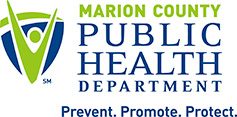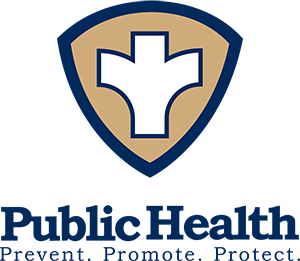
Campaign Overview
You’re Worth It is an anti-stigma campaign that aims to address the guilt, shame, and self-doubt felt by people who are struggling with substance use disorder. The goal is to empower people in our community to believe that they are ‘worth it’ and to not be ashamed to ask for help. We can all make a difference by supporting those around us who may be struggling.
We have compiled resources into three categories: 1) get help now, 2) resources to help you stay safe, and 3) resources for family and friends.
To search for local Substance Use Disorder related providers, please visit RecoveryAssistPlatform.com, a resource developed through the Referral, Assessment and Plan (RAP) Project, which is a partnership between the Marion County Public Health Department and many community organizations to align providers that serve persons with substance use disorders (SUD) and their families in Marion County and the surrounding area.
Findhelp.org is a resource that allows users to enter their zip code into a search box to uncover a whole array of services including addiction and recovery services such as detox, drug testing, medications for addiction, outpatient treatment, peer recovery coaching, residential treatment, sober living, substance abuse counseling, and 12-programming. The website can also be translated into over 100 different languages.
Treatment Connection is a resource that allows users to search for treatment options by zip code. The site includes an addiction treatment needs assessment that can help individuals and loved ones determine which level of treatment is needed. Also, treatment providers can update their status on whether they are accepting new patients.
Marion County Public Health Department – Substance Use Outreach Services offers substance use case management services, naloxone training and kits, and testing for HIV, STIs, and hepatitis. Please call 317-221-4618 or click the hyperlink above.
Indiana 211 is a free and confidential service that helps Hoosiers across Indiana find the local resources they need. Dial 2-1-1 or 866-211-9966 to connect with a navigator. They are available 24 hours a day, 7 days a week.
Indiana Recovery Network offers Peer Support Services which can help connect individuals to detox, treatment, transitional housing, recovery residences, recover community organizations, recovery engagement centers, food pantries, etc. You can get connected by 1) calling 2-1-1, 2) download the IRN Peers app (Apple & Android), or 3) click “connect to a peer” on the IRN website
The Crisis Text Line is free, 24/7, confidential crisis support by text. Crisis Text Line serves anyone, in any type of crisis, providing access to free, 24/7 support and information. To access, Text 741741 or visit their website.
Substance Abuse and Mental Health Services Administration (SAMHSA) National Helpline offers confidential, free help to find substance use and behavioral health treatment, and buprenorphine practitioners online or by calling 1-800-662-4357
National Institute on Drug Abuse (NIDA) Step by Step Guides to Finding Treatment for Drug Use Disorders. Also available in Spanish.
MCPHD Safe Syringe Access & Support (SSAS) offers harm reduction supplies, HIV and hepatitis C rapid screening, safer drug use practices, referral for substance use disorder and mental health treatment, wound care education, immunizations, referral to primary care, and access to health insurance coverage. You can connect with Peer Support by calling 317-671-1630 or get general questions answered by calling 317-221-2117.
The Never Alone Project provides mutual aid, connection to resources, and advocacy/education for people who use drugs, their loved ones, and their communities.
Never Use Alone is a telephone support organization that provides a lifesaving point of contact for people who use drugs. They are there to help you in the event of an overdose by calling (800) 484-3731 before administering drugs.
Overdose Lifeline is a 501(c)(3) nonprofit organization dedicated to helping individuals, families, and communities affected by the disease of substance use disorder. Find support through Lifeline for Loss – a monthly support group for family and friends that have lost someone to an overdose. The CRAFT (Community Reinforcement and Family Training) program is a non-confrontational, evidence-based intervention that helps family and friends develop effective strategies for helping their loved one who is struggling with substance use disorder. Camp Mariposa – Aaron’s Place is a year-round addiction prevention and mentoring program for youth affected by the substance use disorder of a family member. You can request free naloxone, and report use on their website as well.
Parents of Addicted Loved Ones (PAL) provides hope and support through addiction education for parents dealing with an addicted loved one. Find local meetings, resources, or subscribe to their newsletter.
Local Drug Free Coalitions in Marion County – get involved and find support at local monthly meetings.
- Beech Grove Comprehensive Drug Free Coalition
- Decatur Township Drug Free Coalition
- Drug Free Marion County
Online resources about talking to your child about alcohol and other drugs
If you have additional resources to add or correct on this webpage, please contact Mandy Billman at abillman@marionhealth.org.
Stigma is a problem that negatively impacts people with substance abuse disorder as well as their families. Marion County Public Health Department (MCPHD) contracted with an organization, Bingle Research Group, Inc., to conduct surveys about attitudes toward substance use disorder and the people affected by it. The surveys were conducted on a demographically representative, random sample of 1,200 Marion County residents and included questions about substance use disorder, naloxone, and media campaign awareness.
These were the key findings:
· 79-83% indicated that is likely that a person with Substance Use Disorder cannot be trusted.
· 76% agree that people will see a person in a less favorable way if they come to know that he/she has been treated for Substance Use Disorder.
· 74-76% indicated that is likely that a person with Substance Use Disorder would do something violent toward other people.
· 47-52% indicated that they would try to hide their Substance Use Disorder from family or friends.
· 45-48% agree that if they carry Naloxone or Narcan, people will think they’re an opioid user.
These results provide our agency with a baseline to measure changes in attitudes over time. MCPHD, through this campaign and other efforts, is working toward reducing stigmatizing attitudes towards persons with substance use disorder.
Share Your Story
Are you in recovery from substance use disorder? We encourage you to share your story and serve as a beacon of hope, so others know that recovery is possible. Share your story through writing, video, song, or any other format and post on your social media page using #YOUREWORTHIT
Marion County Public Health Department Anti-Stigma Partnership Toolkit
Interested in sharing your story or helping spread our anti-stigma message? Our partnership toolkit includes resources to learn more about the campaign and stigma, gain insight into upcoming events, and find sharable media to help spread the word and raise awareness about stigma.
Here are two examples of people sharing their recovery story.
Richard
Jeanie
The anti-stigma ambassadors participated in a segment of Medically Speaking on 6/26/21. Click here to hear about their stories and experiences with stigma and substance use disorder.
The speakers on the show are our Anti-stigma Ambassadors: Kristy Sheen & Richards Samuels, and Kayley Humm.


